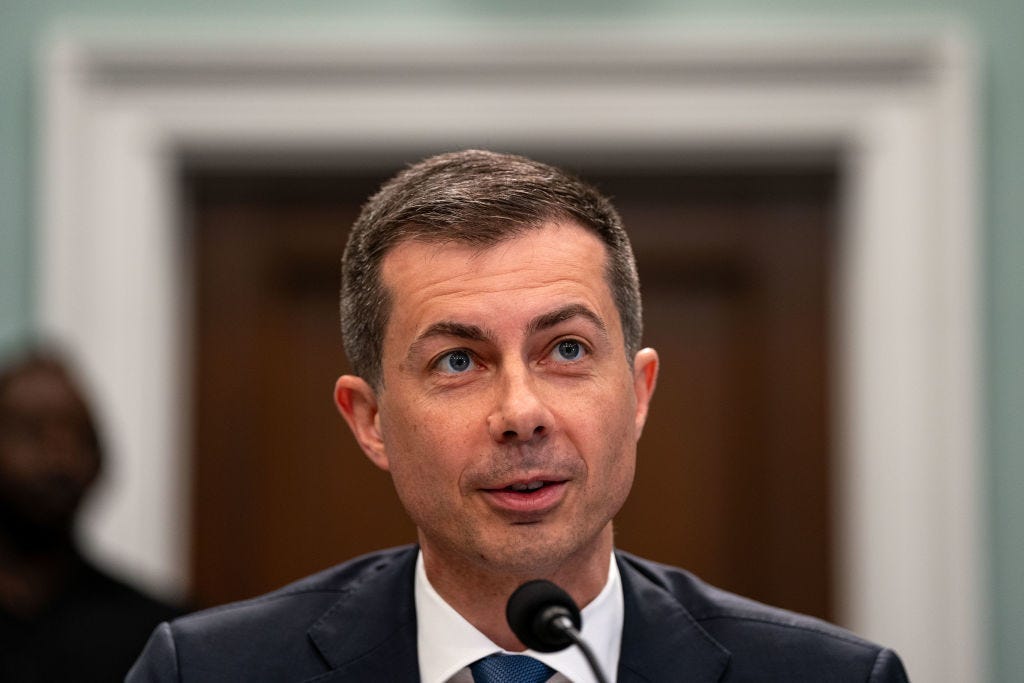Pete Buttigieg on the reality of working with Biden, how bridges fight fascism, and modern fatherhood
A conversation with the secretary of transportation
We spoke with Secretary of Transportation Pete Buttigieg earlier today.
The cabinet secretary and former presidential candidate has been one of the most effective communicators in the Democratic Party and has brought his breadth of experience to the job of fixing America’s infrastructure, a project the Biden administration has been committed to on a scal…




